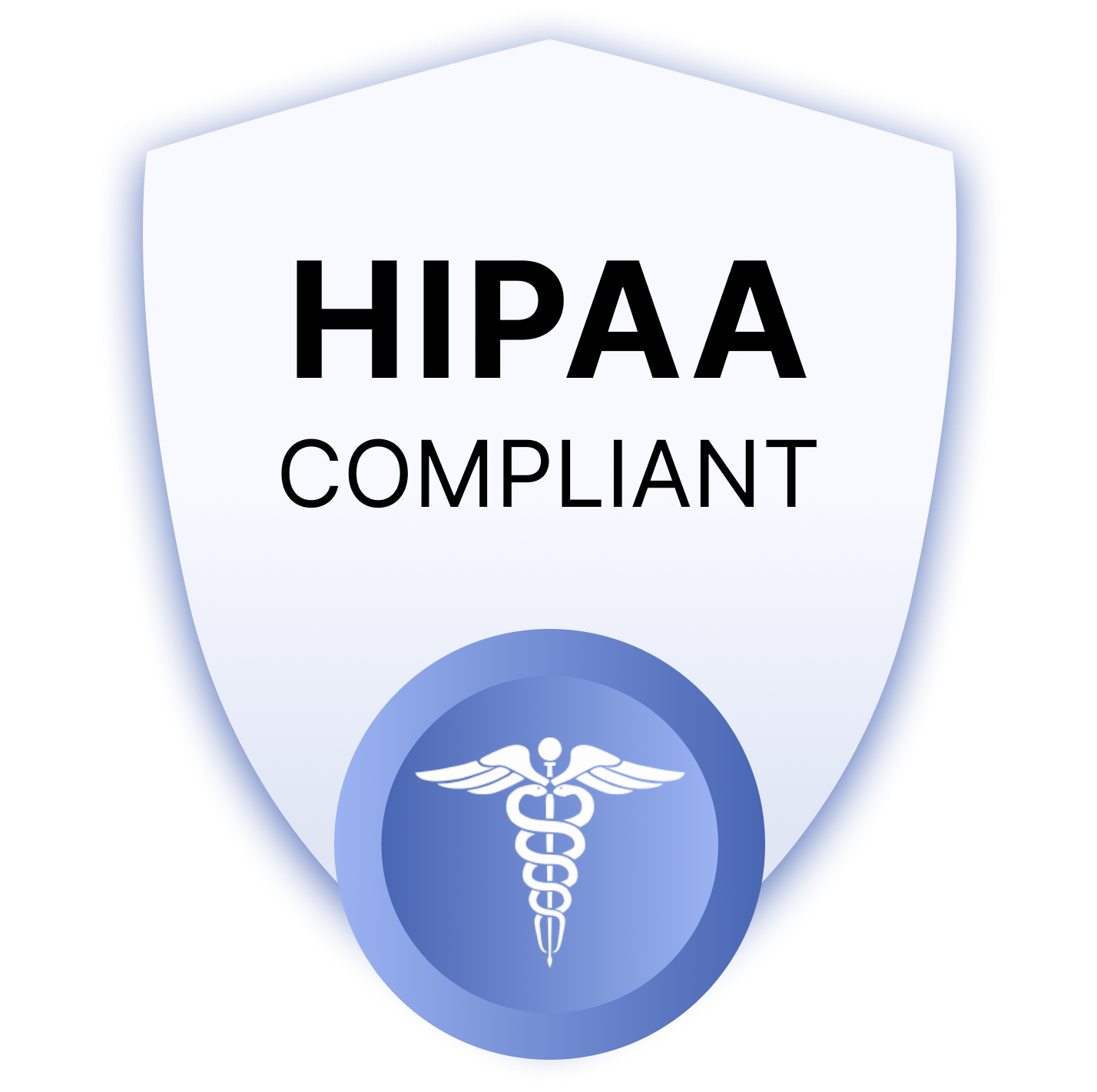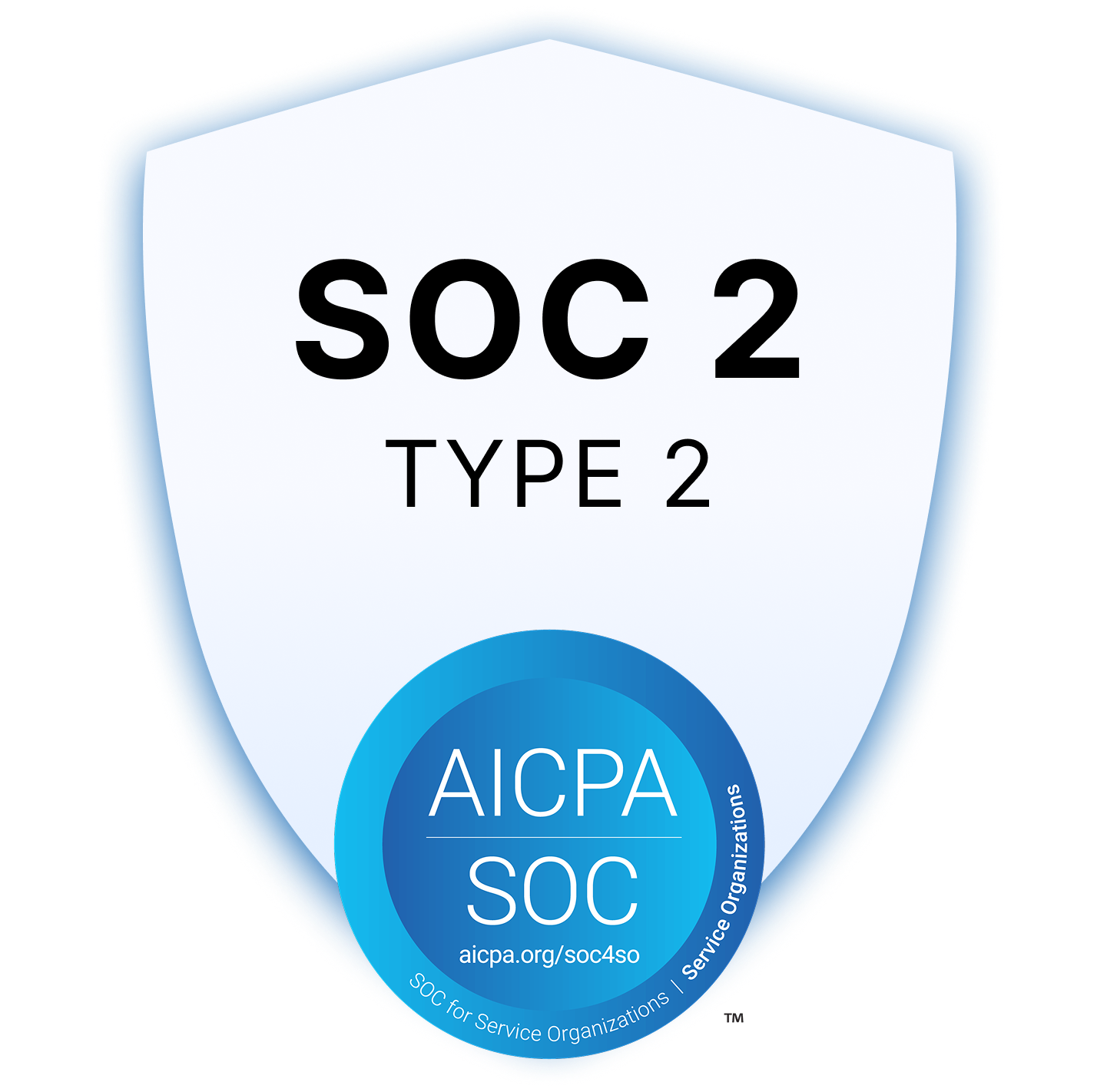
HIPAA Compliance
7 mins
How to Become HIPAA Compliant: 2025 Guide
Summary
Your Competitors Are Embracing AI – Are You Falling Behind?
Becoming HIPAA compliant is an essential process for organizations handling protected health information (PHI) to ensure the privacy, security, and integrity of sensitive data.
As we move further into 2025, it's vital for businesses to be aware of the steps necessary to achieve compliance, as well as know the entities that fall under the requirements of the Health Insurance Portability and Accountability Act (HIPAA).
HIPAA compliance encompasses a wide range of organizational efforts, such as designating privacy and security officers, implementing effective training programs, and monitoring compliance at various levels.
In this article, we’ll cover everything you need to know about becoming HIPAA compliant.

What exactly does being HIPAA compliant mean?
The Health Insurance Portability and Accountability Act (HIPAA) is a federal law in the United States that sets standards for protecting sensitive patient data. Organizations that deal with protected health information (PHI) must adhere to these regulations to ensure the privacy and security of their patient's data. Being HIPAA compliant means that an organization has implemented the necessary administrative, physical, and technical safeguards to protect PHI.
Administrative safeguards involve the development and enforcement of policies and procedures that govern the management of PHI. This includes training employees on HIPAA regulations, designating a privacy officer, and conducting regular risk assessments to identify and address potential vulnerabilities in their handling of patient data.
Physical safeguards pertain to the measures taken to secure the physical premises and devices used to store, transmit, and access PHI. This could involve securing server rooms, implementing access controls, and disposing of electronic media containing PHI in a secure manner.
Technical safeguards involve the implementation and maintenance of technologies that protect PHI against unauthorized access and data breaches. This can include implementing secure access controls, encryption mechanisms, and robust monitoring systems to detect and respond to potential cyber threats.
For healthcare providers, health insurance companies, and various business associates dealing with PHI, achieving HIPAA compliance is not just a legal requirement, but also a demonstration of their commitment to protecting patient privacy. By taking the necessary steps to adhere to HIPAA regulations, these entities can minimize risks associated with handling sensitive patient information and foster a culture of trust and security within their organizations.
Why is becoming HIPAA compliant so important?
Becoming HIPAA compliant is crucial for healthcare organizations because it ensures the protection of sensitive patient information and helps maintain the trust between healthcare providers and patients. Non-compliance with HIPAA regulations can result in hefty fines, lawsuits, and damage to an organization's reputation.
HIPAA compliance safeguards patients' privacy by setting guidelines for the storage, transmission, and usage of their health information. This includes limiting unauthorized access, protecting data integrity, and ensuring timely reporting of breaches. In fact, if healthcare data were not protected by HIPAA, it could be stolen and used to commit healthcare fraud.
Compliance with HIPAA regulations not only mitigates the risks of financial and legal consequences, but it also demonstrates a healthcare organization's commitment to patient safety and protecting their privacy. Moreover, it fosters a culture of compliance within the organization, ensuring that staff members are well-trained in handling sensitive information.
In addition to protecting patients, HIPAA compliance is essential for forming partnerships with other healthcare entities and vendors. A business associate agreement (BAA) is a legally binding contract that outlines the responsibilities and obligations of both parties in handling protected health information (PHI). Being HIPAA compliant increases an organization's credibility and attracts partners who value the security of shared data.
How to become HIPAA compliant in 7 steps
1. Create Privacy and Security Policies for the Organization
The first step in becoming HIPAA compliant is to establish privacy and security policies for your organization. These policies should cover the handling, storage, and sharing of protected health information (PHI). Make sure to communicate these policies to all staff members and regularly provide updates on any changes.
2. Name a HIPAA Privacy Officer and Security Officer
It is essential to designate both a privacy officer and a security officer for your organization. Their role is to oversee the implementation of privacy and security policies, ensuring that your organization remains compliant with HIPAA regulations.
3. Implement Security Safeguards
Implementing security safeguards to protect PHI is crucial. This includes physical, technical, and administrative safeguards to ensure the confidentiality, integrity, and availability of PHI. The specific safeguards should be tailored to your organization's unique needs, as per HIPAA legislation.
4. Regularly Conduct Risk Assessments and Self-Audits
To maintain HIPAA compliance, organizations must perform regular risk assessments and self-audits. This helps identify potential vulnerabilities, evaluate the effectiveness of current security measures, and update policies as necessary to address any risks.
5. Maintain Business Associate Agreements
Business associate agreements are necessary when collaborating with third-party vendors who handle PHI on your organization's behalf. Ensure that these agreements outline the responsibilities and requirements for both parties in complying with HIPAA regulations.
6. Establish a Breach Notification Protocol
HIPAA requires that organizations inform patients, the Department of Health and Human Services (HHS), and potentially the media in the event of a data breach. Ensure that your organization has a breach notification protocol in place to expedite this process.
7. Maintain Documentation
Lastly, your organization must maintain documentation of all efforts taken to become HIPAA compliant, including your policies, training programs, risk assessments, and business associate agreements. This documentation is crucial during a HIPAA investigation with HHS if you want to pass your HIPAA audit.
How long does it take to become HIPAA compliant?
The time it takes to become HIPAA compliant varies depending on the size and complexity of an organization, as well as on the level of current compliance efforts. For some organizations with a solid understanding of HIPAA regulations and robust processes in place, it might take just a few weeks to finalize their compliance efforts. However, for others with minimal existing policies, it can easily take several months or even more than a year to achieve full compliance.
One of the crucial aspects of HIPAA compliance is conducting a thorough risk assessment. This process helps organizations identify vulnerabilities and potential risks to their information systems. Depending on the organization's size and the complexity of its information systems, this step alone could take a few weeks or several months to complete.
After completing the risk assessment, organizations need to develop and implement new policies and procedures. This often includes designating a privacy officer and a security officer, creating employee training programs, and enforcing policies fairly and equally. Depending on the number of policies to be developed and the complexity of implementing the required changes, this phase can also add several weeks or months to the process.
Organizations also need to ensure channels of communication exist to report violations and breaches, as well as monitor compliance at the floor level to catch and address poor compliance practices as they arise. Implementing these communication channels and monitoring procedures may take additional time, especially if it requires educating employees on how to report concerns or breaches.
Final Thoughts
Ultimately, HIPAA compliance is an ongoing responsibility that demands continuous efforts to adapt and address new risks. By integrating these fundamental elements and committing to a culture of compliance, organizations can uphold the highest levels of data protection and regulatory adherence, fostering trust and credibility in the healthcare landscape.

FAQs
What is the cost of HIPAA compliance?
The cost of HIPAA compliance can vary depending on the size and complexity of an organization. Some factors that can affect the cost include the need for training, technology upgrades, and policy implementation. Proactive compliance can be more cost-effective in the long run, as fines and penalties for non-compliance can be steep.
How to become HIPAA compliant as a business associate?
Business associates are also required to comply with HIPAA regulations. The process involves:
- Identifying all aspects of the organization's activities that involve handling Protected Health Information (PHI).
- Conducting a thorough risk assessment to identify potential risks and vulnerabilities to PHI.
- Implementing appropriate security measures to protect PHI, such as encryption and access controls.
- Developing and implementing policies and procedures that address privacy, security, and breach notification requirements.
- Training personnel on HIPAA compliance and ensuring that they understand their responsibilities.
How to get HIPAA certified?
There is no official "HIPAA certification" provided by the government, but organizations can undergo third-party HIPAA assessments or certification programs. These programs evaluate an organization's compliance with HIPAA regulations and can provide a level of assurance to clients and partners. It is essential to choose a reputable assessment or certification provider, and organizations should carefully verify any program's legitimacy before committing resources.
How to become HIPAA compliant for free?
While there are expenses associated with implementing HIPAA compliance measures, some resources can help organizations achieve compliance at a lower cost. Several online resources, like HHS.gov, provide guidance and information on compliance requirements. Free or low-cost tools might be available to help with risk assessments, policy creation, and staff training. It is important to remember that achieving full compliance may still require some investment in technology and personnel, but leveraging available resources can help reduce costs and maintain compliance effectively.
Here's how to automate everything from intake to billing. Faster care, fewer errors, no developers needed.
Related Articles












